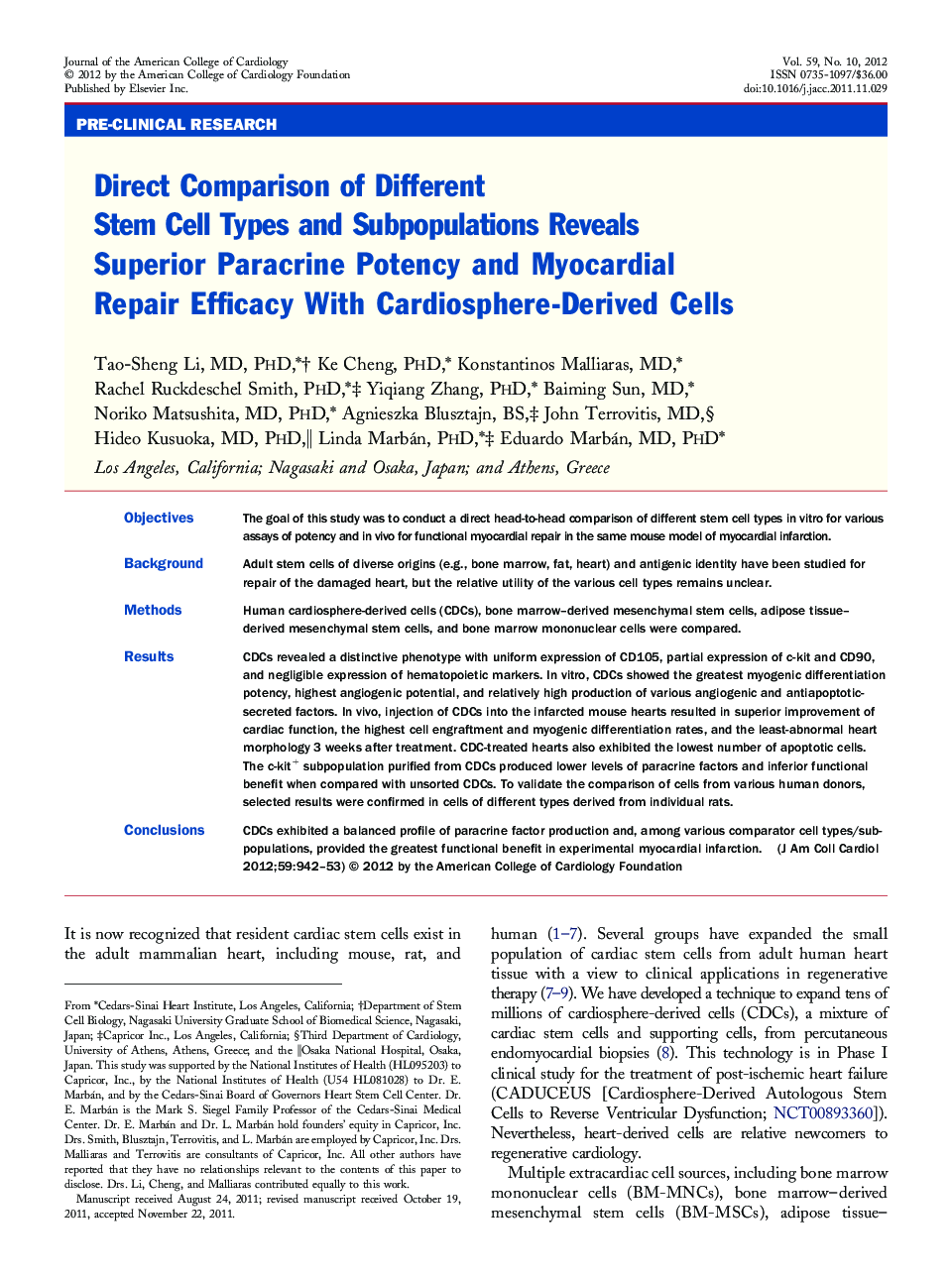| Article ID | Journal | Published Year | Pages | File Type |
|---|---|---|---|---|
| 2947282 | Journal of the American College of Cardiology | 2012 | 12 Pages |
ObjectivesThe goal of this study was to conduct a direct head-to-head comparison of different stem cell types in vitro for various assays of potency and in vivo for functional myocardial repair in the same mouse model of myocardial infarction.BackgroundAdult stem cells of diverse origins (e.g., bone marrow, fat, heart) and antigenic identity have been studied for repair of the damaged heart, but the relative utility of the various cell types remains unclear.MethodsHuman cardiosphere-derived cells (CDCs), bone marrow–derived mesenchymal stem cells, adipose tissue–derived mesenchymal stem cells, and bone marrow mononuclear cells were compared.ResultsCDCs revealed a distinctive phenotype with uniform expression of CD105, partial expression of c-kit and CD90, and negligible expression of hematopoietic markers. In vitro, CDCs showed the greatest myogenic differentiation potency, highest angiogenic potential, and relatively high production of various angiogenic and antiapoptotic-secreted factors. In vivo, injection of CDCs into the infarcted mouse hearts resulted in superior improvement of cardiac function, the highest cell engraftment and myogenic differentiation rates, and the least-abnormal heart morphology 3 weeks after treatment. CDC-treated hearts also exhibited the lowest number of apoptotic cells. The c-kit+ subpopulation purified from CDCs produced lower levels of paracrine factors and inferior functional benefit when compared with unsorted CDCs. To validate the comparison of cells from various human donors, selected results were confirmed in cells of different types derived from individual rats.ConclusionsCDCs exhibited a balanced profile of paracrine factor production and, among various comparator cell types/subpopulations, provided the greatest functional benefit in experimental myocardial infarction.
